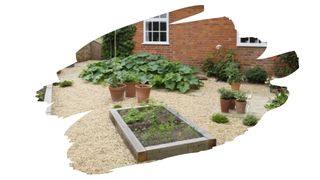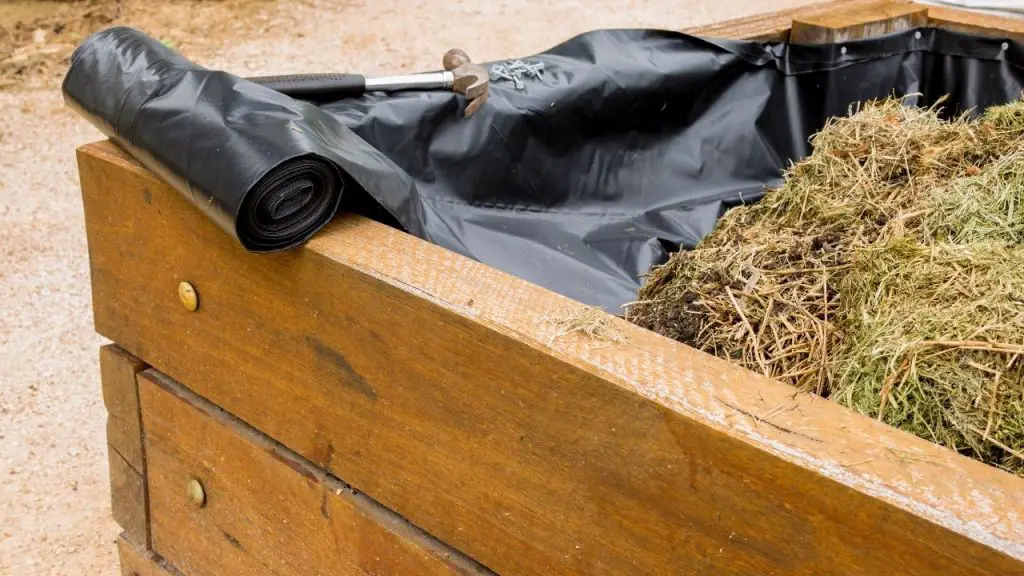There is a very good reason why garden beds are often made out of untreated wood. Using chemical-free timber, means you needn’t worry about chemicals seeping into soil.
But, natural wood rarely lasts long in the great outdoors without a special treatment…or does it?
You see, there are some naturally durable woods that can last without any chemical preservatives. In fact, they can go decades without succumbing to rot and decay.
And Oak is one such type of lumber. It strong and durable. And some types of Oak wood are even water-resistant. But, how long can untreated Oak last in all-weather conditions?
Well, in this post, you’ll discover why most types of untreated wood tend to rot away easily. You will also learn why some types of untreated wood are more durable than others.
And we reveal which specific type of Oak can last 20 years when left untreated…

This post may contain affiliate links to products that we receive a commission for (at no additional cost to you). Learn more here.
What Is Untreated Wood?
Untreated wood does not contain any wood preservatives. Those wood preservatives would otherwise safeguard wood from rot, bugs and insects.
Treated wood, on the other hand, has been put through a chemical process that infuses it with wood preservatives. In turn, treated wood can avoid decay for much longer than untreated wood, even when used in high humidity environments.
Related Post: How To Dry Pressure Treated Wood (Quickly And Without Warping)
And Can You Use Untreated Wood For Raised Beds?
Absolutely. But, how long that wood lasts, will depend on its wood type.
Wood, in general, doesn’t do well if moisture and humidity gets into it. That moisture becomes absorbed by wood fibers, and provides the perfect environment for white rot fungi to thrive.
Related Post: Rotting Wood Around Your Sink? 3 Ways To Protect That Wooden Worktop
However, certain types of wood are naturally rot-resistant. They can last a very long time outside—even without a wood sealing finish.
For example, Teak wood and Rosewood are two well-known durable woods. These two tropical hardwoods are filled to the brim with natural tree oils. And those tree oils act like an oil finish by saturating wood grain. As a result, they don’t succumb to rot and decay as fast as other types of wood.
This is why these more durable wood types are great for decking and garden furniture.
Related Post: Is White Oak Good For Making Durable Outdoor Furniture?
What About Oak? Is Oak Wood Rot Resistant?
White Oak wood is very rot resistant. However, its rot-resisting capabilities aren’t as a result of natural tree oils.
Rather, White Oak wood has two characteristics that protect it from harsh outdoor weather:
Tyloses
White oak wood has a unique quality to it that makes it difficult for water to sink into this lumber. That’s because White Oak has special cell growths called Tyloses.
Tyloses form over the wood pores of White oak, sealing them up. This stops White oak from absorbing water right into it. And that, in turn, prevents wood rot from thriving.
Tannins
Oak wood also contains a high amount of a natural chemical compound, called Tannins. Tannins are found in plants and trees, and they act like a nature’s-own fungicide, stopping bacteria from growing on tree bark.
However, Oak in particular has a high level of Tannins in it. And this compound helps Oak fight off wood rot, and keep decay at bay.
Related Post: Is Sapele Wood Any Good For Outdoor Use?
Can You Make Planter Boxes Out Of Untreated White Oak?
Yes you can. Not only is this wood naturally durable, it is also hard and sturdy.
In fact, it’s stronger than even Cedar and Walnut wood (based on their Janka ratings).
What Is The Janka Rating? The Janka rating measures how much force it takes to dent a piece of timber. The higher the rating, the harder the timber.
But How Long Will Untreated Oak Wood Last Out In The Wild?
This all comes down to the amount of contact oak wood has with damp soil. Above ground, Oak wood can stay upright for around 20 years.
However, in-ground, (i.e. that Oak has ongoing direct contact with soil), it’ll last less than half that. When in-ground, Oak can only survive around 8-10 years.
Related Post: Is Redwood Mulch Good For A Vegetable Garden?
So, What Can You Do To Keep An Untreated Oak Wood Raised Bed From Rotting?
Well, one of the first things you should do is minimize Oak woods contact with top soil.
The best way to do this is to line the inside of that raised bed with plastic sheeting.

This is a quick and easy way to keep oak separate from soil.
Another thing you can do is seal white oak with a wood sealer. Wood sealers will coat onto White Oak, giving it a water-resistant film on the surface.
But, there’s a good reason why we use untreated wood for a vegetable garden bed. It’s because we want to keep chemical preservatives away from plants.
So, you should only ever use a plant-safe wood sealer on wood meant for a raised bed. Which is why Seal It Garden Bed Wood Sealer is the best choice for your raised bed.
It is an eco-friendly product that is free of all the toxic chemicals and solvents typically associated with most wood sealers. It is a long lasting sealer too, and will weatherproof untreated Oak wood for over a decade.
You can find the latest prices for this garden-safe wood sealer over on Amazon.
To Wrap Up, Here Are The 3 Key Takeaways From This Post…
- 1). Untreated wood does not contain any wood preservatives. This can leave untreated wood vulnerable to wood rot, bugs and decay.
- 2). Untreated White Oak is naturally durable because its pores are sealed by growths called Tyloses. It also contains a lot of a natural fungi-fighting compound, called Tannins.
- 3). Untreated White Oak wood can last up to 20 years above ground. But, if it has constant contact with top soil, it won’t last much longer than 10 years.
References:
Aloui, F., et al. “Durability of European oak (Quercus petraea and Quercus robur) against white rot fungi (Coriolus versicolor): relations with phenol extractives.” Holz als Roh-und Werkstoff 62.4 (2004): 286-290.



